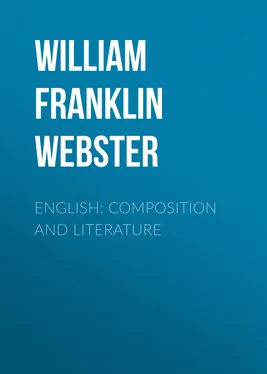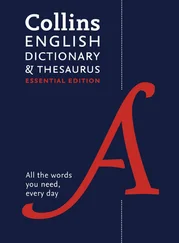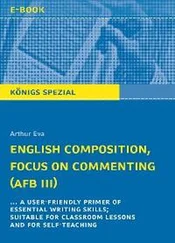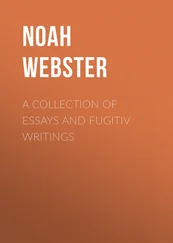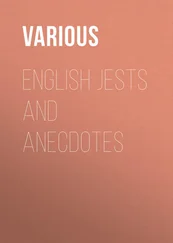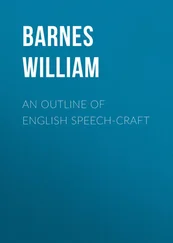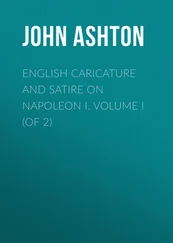William Franklin Webster - English - Composition and Literature
Здесь есть возможность читать онлайн «William Franklin Webster - English - Composition and Literature» — ознакомительный отрывок электронной книги совершенно бесплатно, а после прочтения отрывка купить полную версию. В некоторых случаях можно слушать аудио, скачать через торрент в формате fb2 и присутствует краткое содержание. Жанр: psy_personal, foreign_language, foreign_edu, foreign_antique, на английском языке. Описание произведения, (предисловие) а так же отзывы посетителей доступны на портале библиотеки ЛибКат.
- Название:English: Composition and Literature
- Автор:
- Жанр:
- Год:неизвестен
- ISBN:нет данных
- Рейтинг книги:3 / 5. Голосов: 1
-
Избранное:Добавить в избранное
- Отзывы:
-
Ваша оценка:
- 60
- 1
- 2
- 3
- 4
- 5
English: Composition and Literature: краткое содержание, описание и аннотация
Предлагаем к чтению аннотацию, описание, краткое содержание или предисловие (зависит от того, что написал сам автор книги «English: Composition and Literature»). Если вы не нашли необходимую информацию о книге — напишите в комментариях, мы постараемся отыскать её.
English: Composition and Literature — читать онлайн ознакомительный отрывок
Ниже представлен текст книги, разбитый по страницам. Система сохранения места последней прочитанной страницы, позволяет с удобством читать онлайн бесплатно книгу «English: Composition and Literature», без необходимости каждый раз заново искать на чём Вы остановились. Поставьте закладку, и сможете в любой момент перейти на страницу, на которой закончили чтение.
Интервал:
Закладка:
Books of travel, memoirs, and biographies, as whole books, are generally without any arrangement serious enough to be termed a plot; yet a large part of the interest in such books would be lost were the incidents there collected not well told, with a conscious attempt to set them out in the very best fashion; indeed, if each incident did not have a plot. In “Vanity Fair” with its six hundred pages, in “Silas Marner” with its two hundred pages, in the short stories of our best magazines, in the spicy little anecdotes in the “Youth’s Companion,”—in the least bit of a good story as well as the three-volume novel, the authors have used the means best suited to retain the interest to the end. They have constructed plots.
Unity, Mass, and Coherence.In the construction of any piece of composition there are three principles of primary importance: they are Unity, which is concerned with the material itself; and Mass and Coherence, which are concerned with the arrangement of the material. A composition has unity when all the material has been so sifted and selected that each part contributes its share to the central thought of the whole. Whether of a sentence, a paragraph, or a whole composition, all those parts must be excluded which do not bring something of value to the whole; and everything must be included which is necessary to give a clear understanding of the whole. Mass, the second principle of structure, demands that those parts of a composition, paragraph, or sentence which are of most importance shall be so placed that they will arrest the attention. By coherence is meant that principle of structure which, in sentences, paragraphs, and whole compositions, places those parts related in thought near together, and keeps separate those parts which are separated in thought.
Main Incident.For the construction of a story that will retain the reader’s interest to the end, for the selection of such material as will contribute to a central thought, for the arrangement of this material so that the most important matter shall occupy the most important position in the theme, one simple rule is of value. It is this: First choose the main incident towards which all the other incidents converge, and for the accomplishment of which the preceding incidents are necessary. A few pages will be given to the application of this rule, and to the results of its application.
Its Importance.There should be in each story, however slight the plot, some incident that is more important than the others, and toward which all the others converge. A reader is disappointed if, after reading a story through, he finds that there is no worthy ending, that all the preparation was made for no purpose. If, in “Wee Willie Winkie,” Kipling had stopped just before Miss Allardyce started across the river, it would have been a poor story. It would have had no ending. It is because a story gets somewhere that we like it. Yet not just somewhere; it must arrive at a place worthy of all the preparation that has preceded. A very common fault with the compositions of young persons is that they begin big and end little. It is not infrequent that the first paragraph promises well; the second is not quite so good; and the rest gradually fall off until the end is worthless. The order should be changed. Have the first paragraph promise well, make the second better, and the last best of all. The main incident should be more important than each incident that precedes it. Get the main incident in mind before beginning; be sure it is the main incident; then bend all your energies to make it the most important incident toward which all the other incidents converge.
Unity.The choice of a main incident will determine what incidents to exclude. The world is full of incidents—enough to make volumes more than we now have. A phonograph and a camera could gather enough any day at a busy corner in a city to fill a volume; yet these pictures and these bits of conversation, interesting as each in itself might be, would not be a unit,—not one story, but many. Few persons, indeed, would write anything so disjointed as the report made by this phonograph; yet good writers are often led astray by the brilliancy of their own ideas. They have so many good stories on hand which they would like to tell, that they force some of them into their present story, and so spoil two stories. In the very popular “David Harum,” it would puzzle any one to know why the author has introduced the ladies from the city and the musical party at the lake. The episode is good enough in itself; but in this story it has not a shadow of excuse. There is a phrase of Kipling’s that should ring in every story-teller’s ears. Not once only, but a number of times, this prince of modern story-tellers catches himself—almost too late sometimes—and writes, “But that is another story.” One incident calls up another; paragraph follows paragraph naturally. It is easy enough to look back and trace the road by which the writer arrived at his present position; yet it would be very hard to tell why he came hither, or to see how the journey up to this point will at all put him toward his destination. He has digressed; he has left the road. And he must get back to the road. By this digression he has wasted just as much time as it has taken to come from the direct road to this point added to the time it will take to go back. Do not digress; tell one story at a time; let no incident into your story which cannot answer the question, “Why are you here?” by “I help;” keep your eye on the main incident; things which do not unquestionably contribute something to the main incident should be excluded.
Introductions and Conclusions.The choice of the main incident towards which all other incidents converge will rid compositions of worthless introductions and trailing conclusions. A story should get under way at once; and any explanations at the beginning, the introduction of long descriptions or tedious paragraphs of “fine writing,” will be headed off if the pupil keeps constantly in mind that it must all lead directly toward the main incident. Again, if everything converges to the main incident, when that has been told the story is finished. After that there must be no explanations, no moralizing, nothing. When the story has been told it is a good rule to stop.
An excellent example of a short story well told is “An Incident of the French Camp,” by Robert Browning. Only the absolutely necessary has been introduced. The incidents flash before the reader. Nothing can be said after the last line. “Hervé Riel” is a vivid piece of narrative too. Such an exhibition of manliness appeals to all. Was it necessary to attach the last stanza? If this poem needed it, why not the other? If the story has no moral in it, no man can tie it on; if there is one, the reader should be accounted intelligent enough to find it without any help.
Tedious Enumerations.Making all the incidents converge to one main incident will avoid tiresome enumerations of inconsequential events, which frequently fill the compositions of young pupils. Such essays generally start with “a bright, clear morning,” and “a party of four of us.” After recounting a dozen events of no consequence whatever, “we came home to a late supper, well repaid for our day’s outing.” These compositions may be quite correct in the choice of words, sentences, and paragraphs, and with it all be flat. There is nothing to them; they get the reader nowhere. Pick out one of the many incidents. Work it up. Turn back to the paragraph from Stevenson and notice how little there is to it when reduced to bare outline. He has worked it up so that it is good. Always remember that a short anecdote well told is worth pages of aimless enumeration.
Читать дальшеИнтервал:
Закладка:
Похожие книги на «English: Composition and Literature»
Представляем Вашему вниманию похожие книги на «English: Composition and Literature» списком для выбора. Мы отобрали схожую по названию и смыслу литературу в надежде предоставить читателям больше вариантов отыскать новые, интересные, ещё непрочитанные произведения.
Обсуждение, отзывы о книге «English: Composition and Literature» и просто собственные мнения читателей. Оставьте ваши комментарии, напишите, что Вы думаете о произведении, его смысле или главных героях. Укажите что конкретно понравилось, а что нет, и почему Вы так считаете.
